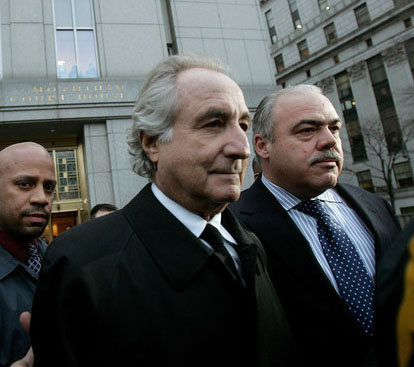 Perhaps even more than legit businesses, Ponzi schemes rely on the oldest form of marketing: word of mouth.
Perhaps even more than legit businesses, Ponzi schemes rely on the oldest form of marketing: word of mouth.
Any business owner can attest to how hard sales are, and that’s when the product or service actually exists. With fake investment gains, it should be even harder, especially for the first few investors. But then word of mouth takes off and all of a sudden the scheme seems legit.
I did not hear the latest witnesses testify in the Underwood case, but Frank Green has a great story in today’s Times-Dispatch about the sort of trouble victims are in, and how they ended up losing their savings.
You can read a previous BizSense story on it here.
The Underwoods are a couple from Chesterfield who are on trial in Richmond for running bogus investment business worth more than $18 million that allegedly bought homes in foreclosure and took out the existing equity. Instead, the prosecutors allege, they paid established investors pretend returns culled from new investors.
The defense says the Underwoods did not have the financial acumen to understand what was happening, and that they had no malicious intentions. Nor did they spend much of the money, according to both the prosecution and the defense.
So how do Ponzi Schemes thrive?
Because when a trusted friend tells you it’s legit, it’s harder to question their wisdom. Especially when your friend is living large on the earnings.
One of the witnesses said he convinced 44 other friends to invest. Now his contacts have threatened his life, Green reports. I’ve heard similar tales, albeit without the life-threatening, for stock tips. That’s why I never take a stock tip. Ever.
It’s the same sort of willful self-deception that led investors to bid up the stock prices of Internet companies with NO earnings. At first you think it’s B.S., as well you should. Your brain is functioning well. But then so many other people seem to be making money, you start to feel foolish for missing out. And it becomes extremely hard to refuse.
Aaron Kremer is the BizSense editor. RBS will have full coverage on the final day of the hearing.
 Perhaps even more than legit businesses, Ponzi schemes rely on the oldest form of marketing: word of mouth.
Perhaps even more than legit businesses, Ponzi schemes rely on the oldest form of marketing: word of mouth.
Any business owner can attest to how hard sales are, and that’s when the product or service actually exists. With fake investment gains, it should be even harder, especially for the first few investors. But then word of mouth takes off and all of a sudden the scheme seems legit.
I did not hear the latest witnesses testify in the Underwood case, but Frank Green has a great story in today’s Times-Dispatch about the sort of trouble victims are in, and how they ended up losing their savings.
You can read a previous BizSense story on it here.
The Underwoods are a couple from Chesterfield who are on trial in Richmond for running bogus investment business worth more than $18 million that allegedly bought homes in foreclosure and took out the existing equity. Instead, the prosecutors allege, they paid established investors pretend returns culled from new investors.
The defense says the Underwoods did not have the financial acumen to understand what was happening, and that they had no malicious intentions. Nor did they spend much of the money, according to both the prosecution and the defense.
So how do Ponzi Schemes thrive?
Because when a trusted friend tells you it’s legit, it’s harder to question their wisdom. Especially when your friend is living large on the earnings.
One of the witnesses said he convinced 44 other friends to invest. Now his contacts have threatened his life, Green reports. I’ve heard similar tales, albeit without the life-threatening, for stock tips. That’s why I never take a stock tip. Ever.
It’s the same sort of willful self-deception that led investors to bid up the stock prices of Internet companies with NO earnings. At first you think it’s B.S., as well you should. Your brain is functioning well. But then so many other people seem to be making money, you start to feel foolish for missing out. And it becomes extremely hard to refuse.
Aaron Kremer is the BizSense editor. RBS will have full coverage on the final day of the hearing.